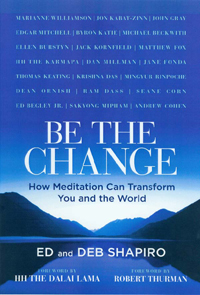
Better to have few jewels than many rhinestones! We love our friends and would do just about anything for them, but would we lie in order to make them feel good? Obviously we don't want to cause any hurt, but are we being of any help if, for instance, a friend's partner comes on to us or we know that person is not being faithful and we don't let our friend know? Do we let our friend continue to believe someone loves them when they clearly do not? Or do we tell our friend and cause more confusion?
Perhaps a job is available where we work and our friend wants it but is not as qualified as someone else we know, so who do we recommend? Ed had to face a similar situation recently. We want to protect our friends, but if we lie are we being helpful? Do we compromise ourselves and do things in order to make our friend happy, even though it's not what we really want to do? Some say that to be a good friend we should be completely honest. But is that really possible without causing hurt?
Do you ever find you are listening over and over again to a friend complaining about their difficulties? Deb was once talking on the phone to a friend who constantly related the same story. Deb listened for what felt like the 100th time, always trying to make her friend feel good while offering suggestions of what she could do to change the situation, but this time the complaining went on too long. Deb had to say, "You aren't listening to what I am suggesting or doing anything other than complain. You need to begin to make changes."
Is that being a friend? Can we tell it like it is and be honest, and yet not create suffering? For friendship to be real, we may need to discriminate between where our words are of real help and value, or where they are just supporting an already unhealthy or even neurotic situation. This is the difference between words that are skillful or unskillful, between being either a help or a hindrance. Skillful actions bring out the best in each situation and encourage respect and kindness, while unskillful actions are basically self-centered and harmful in the long run.
In Buddhism, this difference is known either as wise compassion, action that is inherently skillful, that sees the whole situation and aims to bring release from suffering; or as idiot compassion that does not take into account the whole situation and so, although it looks kind, it is inherently unskillful and may actually increase suffering, such as supporting or condoning neurosis, whether in ourselves or someone else. The balance of these two qualities--compassion and discernment--is essential in order to see where pity is masquerading as kindness.
In other words, friendship is both the unconditional, all-encompassing acceptance of another, as well as the ability to not support ignorance or neurosis. This means seeing a situation clearly, and finding a way to tell the truth so that further suffering can be avoided.
Love makes the world go round and it also makes for a good friendship! With love there is trust and we can say things that may not always be agreeable or even if it hurts. Perhaps it is better to have a few such jewels or honest friends, than many rhinestones or fake friends.
Are you always honest with your friends? Do you ever lie to make a friend feel good? Do comment below. You can receive notice of our blogs every Tuesday by checking Become a Fan at the top.
You can order a copy of our latest book at: BE THE CHANGE, How Meditation Can Transform You and the World.

****
Ed and Deb Shapiro's new book, BE THE CHANGE, How Meditation Can Transform You And The World, forewords by the Dalai Lama and Robert Thurman, with contributors Marianne Williamson, astronaut Edgar Mitchell, Michael Beckwith, Jon Kabat-Zinn, Byron Katie, Jack Kornfield, Jane Fonda, and others.
Join us at the Institute of Noetic Sciences for a workshop June 18-20, with special guest speaker astronaut Edgar Mitchell: www.noetic.org
Experience our 3 meditation CD's: Metta -- Loving kindness and Forgiveness; Samadhi - Breath Awareness and Insight; and Yoga Nidra - Inner Conscious Relaxation, available at: www.EdandDebShapiro.com
Deb is the author of the award-winning book YOUR BODY SPEAKS YOUR MIND.